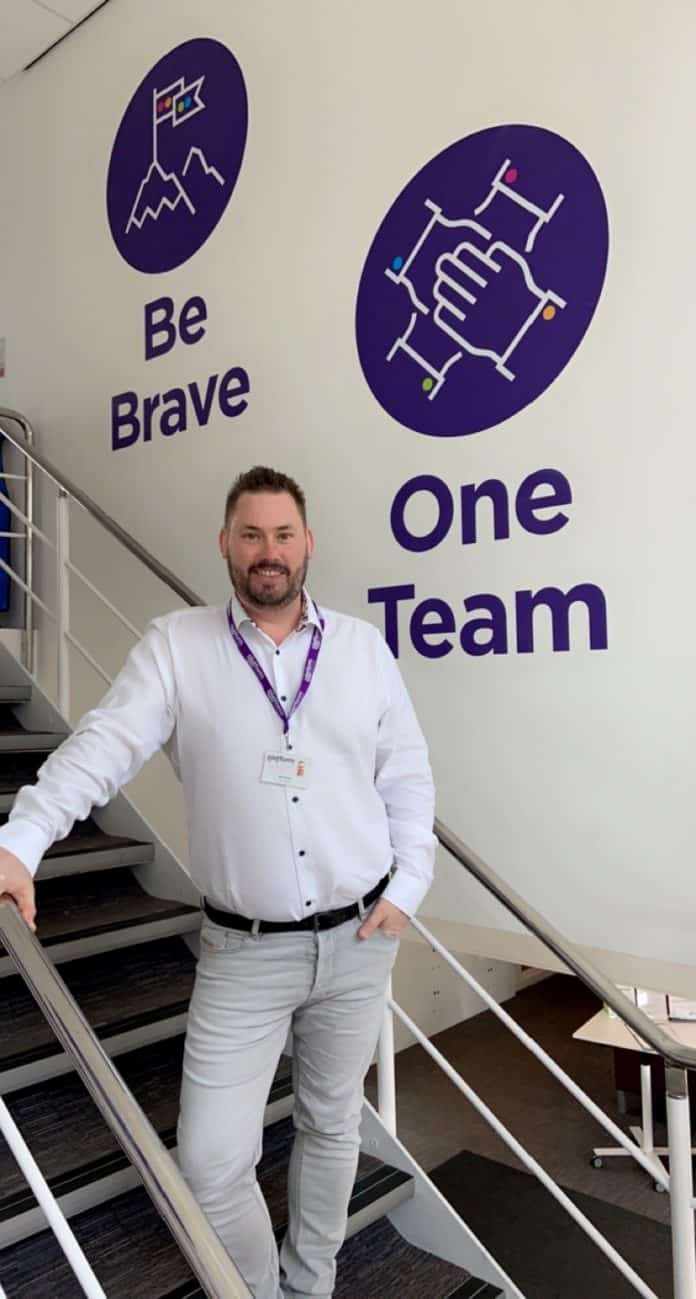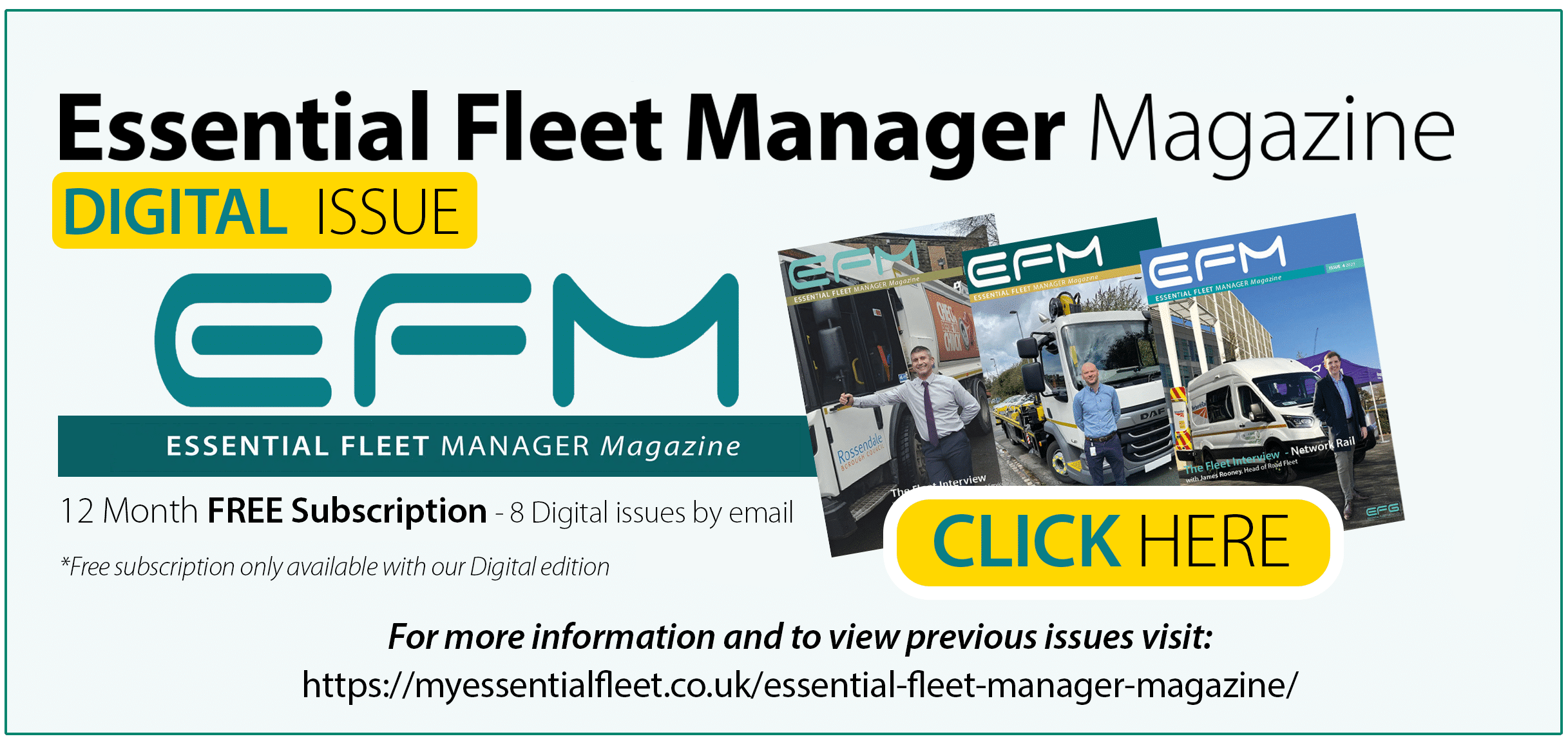Platform Housing Group is one of the largest providers of social housing in the Midlands. With 45,000 homes and 120,000 customers spread between the Derbyshire Dales in the North, The Cotswolds in the South, Herefordshire in the West and all the way through to the Lincolnshire coast in the East, maintaining properties and services is a complex operation.
The backbone of this operation is the van fleet and Essential Fleet Manager has been speaking to Matt Neale, Group Fleet Manager, who by embracing innovative thinking, new technology and ideas is driving fleet management standards forward to the future. Matt is also the recipient of the ‘Financial Superstar’ award at the Great British Fleet Awards, with the judging panel commenting:
“Since Matthew joined the company in September 2021, he’s made a tangible and positive difference to the fleet team and the larger fleet sector in the UK. His work at Platform has included revamping the fleet strategy and policy, making operational and structural changes and introducing new solutions – helping to optimise fleet running and enhance functions.”
All of which has been branded by Paul Hollick, Chairman of the Association of Fleet Professionals, as “nothing short of phenomenal – and making Platform very much an example of best practice going forwards too.”
Q: On joining Platform Housing Group, what did you see as the most pressing challenges and were there any obvious opportunities for improvement?
Upon joining Platform, I listed all the areas that immediately stood out for improvement and categorised them in order of priority.
The first challenge to overcome was managing 400+ vehicles on a spreadsheet. I engaged with FleetCheck and they soon became our Fleet Management System partner. This allowed me to manage multiple streams of crucial data in one platform, which is priceless when running a small team.
We then went on to partner with FMG Accident Management to support in our Accident Management provision. This was the first step in the right direction to collating our accident information, to provide us a one touch solution to our drivers, whilst also providing us with robust reporting solutions and access to more insightful information to support in us identifying trends and areas for immediate improvement. FMG also actively manages the downtime of these vehicles, which for a small team has been a valuable area of support for a business who relies on maximising vehicle availability at all times.
Q: What was the consultation process that lay behind the formulation of your fleet strategy?
The Fleet Strategy was born out of our Corporate Strategy 2021 – 2026. Our fleet is highly visible within the communities that we work in, and our leaders fully support the importance of ensuring that we provide a robust vehicle provision to support in the delivery of customer service excellence to our customers.
Our high-level overview of our strategy is to provide a group wide World-Class Fleet service to Platform Housing Group, leveraging our scale and size to generate commercial benefit, the highest levels of service, Risk Management and Driver compliance.
Q: What are the main objectives of that strategy?
This Fleet Strategy shares how, through pro-active Fleet Management, we will deliver our strategic goals and provide assurance on risk and our contracted exposure.
The Fleet Team will ensure that Platform realises the benefits and economies of scale for an organisation of our size and influence.
The outcomes will be:
- An improved Customer Experience (for our drivers and tenants).
- Efficiency savings linked to Vehicle utilisation and availability.
- The provision of a fully compliant fleet offering, ensuring the right vehicle is available at the right time.
- The delivery of a compliant business-wide Driver Behaviour Program.
- A compliant ‘Grey Fleet’.
- A managed approach to Risk and Insurance.
- The achievement of value for money through modelling and understanding the Whole Life Cost.
- Involvement of our drivers and the incorporation of our drivers’ views.
- Engagement internally, with the sector, external stakeholders, and partners.
- Roll out of electric vehicle fleet.
Q: What are the day to day challenges that affect vehicle operation and how can they impact the delivery of services?
Many factors affect our daily operation, such as staffing and materials, so as a Fleet team we fully appreciate that Vehicle reliability plays a key role in our business running efficiently.
We maximise the productivity of our operatives, and to do that we need to ensure we have the most reliable vehicles supporting our delivery of service.
We want to work with suppliers and organisations who share our social purpose to build innovation and secure quality delivery.
We will continue to develop trusted and mutually beneficial commercial relationships with suppliers, and will look to achieve whole life value from what we buy, and we will not base our decisions on cost alone.
Q: How large a part will E-LCVs play in lowering emissions and ultimately, decarbonising your fleet?
The transition from Diesel LCV’s to E-LCV’s will play a major part of our business over the coming years. Our corporate strategy is to be fully electric by 2026. I have forecasted to have transitioned 25% of the fleet to E-LCV by end of 2023, and then 25% per year after. We are currently in the middle of ensuring we have all the correct infrastructure to support our journey to a greener future.
Q: What is the current fleet breakdown and how will this change in the short, medium and long-term? How much of this change will be driven by an increase in services offered by Platform Housing Group?
We currently have 470+ vehicles, with 95% of those being light commercial vehicles.
As we build and take on more properties, our van fleet will grow with this to support the demands of the business. In September we had approx. 400 vehicles, and already we are up to 470. I project this to be 500 by the end of 2022.
Q: How important is technology in meeting all your goals and which types of solutions do you see having the greatest potential?
Technology is going to play a vital part in us being able to achieve our goals as an effective vehicle fleet. We will continue to invest in the newest, most innovative technologies which will allow us to not only drive a more efficient fleet, but also a safer one.
We are currently looking in to our telematics providers, to support in the overall improvement of our driver behaviours, whilst also supporting in the carbon reduction. We are also researching various camera solutions.
Q: Away from the van fleet, you have recently implemented an employee Salary Sacrifice scheme for cars. How will this scheme assist in reducing whole fleet emissions and how does it improve employee well-being and retention?
Our Green Salary Sacrifice Employee Car Ownership Scheme is a great addition to the many benefits we already offer our employees. This scheme will allow employees to have a vehicle, that they may not in other circumstances be able to afford.
They will be able to benefit from tax savings and do their part in making our planet a greener place to live. It also allows us to support our groups wider ESG commitments
Q: How are you approaching driver training, well-being, and risk management?
We take the well-being of our drivers very seriously, and as such we are currently undertaking a complete overhaul of our driver behaviour and risk management offering on our commercial vehicles. This has board level sponsorship, and we will engage all areas of the business such as Fleet, Health and Safety, Human Resources, Finance, Service Managers and our front-line operatives to make sure we get it right.
We are a modern housing association, and as such we are fully embracing new ways to make our fleet safer, and are currently in communications with telematics, driver behaviour and road risk partners, with a view to becoming a pioneer in our sector, and truly leading by example.
Q: The charitable status of Platform Housing Group demands that you are as financially efficient as possible when not only running but also expanding your fleet. How do you get the most out of your financial resources?
Whilst we are a “not for profit” organisation we have a clear obligation to our customers that we ensure that the ‘Platform Pound’ is spent effectively, efficiently and with a conscience. We base our decisions on whole life costs and seek out sustainable practices that support our longer-term goals around Economic and Social Growth. We best achieve this by building strong relationships with our suppliers whilst looking internally to ensure that we reduce waste and duplication in our internal processes.
Q: As an active member of The Association of Fleet Professionals, how important is the sharing of ideas and expertise, when it comes to driving up standards in fleet management?
It is imperative that we, as an industry share best practice to create a better industry for ourselves. We should continue to develop our technologies, improve on our communication (whether that be verbally, written, or digital) and invite new experts into our field to support in our growth.
Being a member of the AFP allows me to openly engage with like-minded professionals about how to develop not only personally, but also professionally to make Platforms fleet a market leader in the housing sector.
I was also invited by the AFP to become a committee member on two committees which are ‘Committee of Light Commercial Vehicles’ and ‘Committee for Training, Education & Leadership’ which allows me to not only develop professionally, but also support in others progression. I am also currently undertaking the AFP Fleet Vehicle Management Strategic course, which is externally accredited by the Institute of the Motor Industry (IMI).
www.platformhg.com
This feature appeared in the issue 4 of Essential Fleet Manager – click here to visit the archive




